Kanji, misogyny, and representation.
Each year, there’s often one game that dominates my time for a hundred or so hours.
Last year it wasElden Ring.
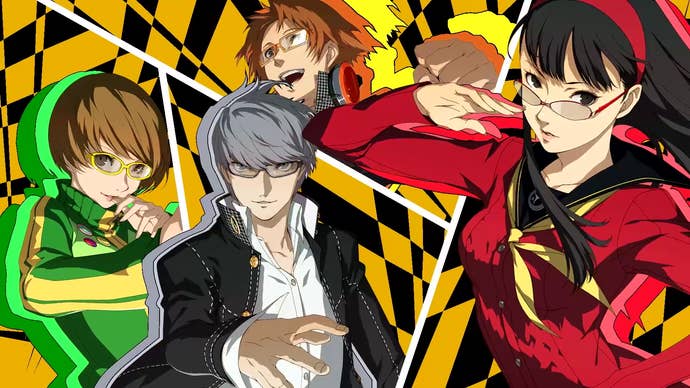
Previously it wasBreath of the WildandThe Witcher 3.
Back in 2017 it wasPersona 5.
I’d never previously played a game in the Persona (or Shin Megami Tensei) series.

It instantly became one of my favourites.
I’m so disappointed.
Yet with its outdated stereotypes and dialogue filled with misogyny and homophobia, P4G has not aged well.

This isn’t a fine red wine, but a bottle of sparkling that’s gone flat.
It may seem unfair to critique a Japanese game from over a decade ago for having outdated views.
After all, it’s a product of its time and of its culture.
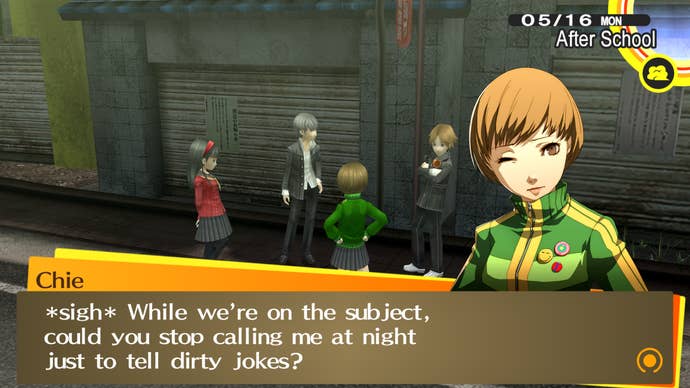
You play as a young man who moves to a new school in a new area of mysterious happenings.
It’s even got the same weird Velvet Room where your Persona powers are manipulated.
P4G does have its charm.

The smaller scale feels more manageable too.
And the j-pop music, as always, is pure joy.
Yet throughout my time with P4G so far, I can’t shake the feeling of overfamiliarity.
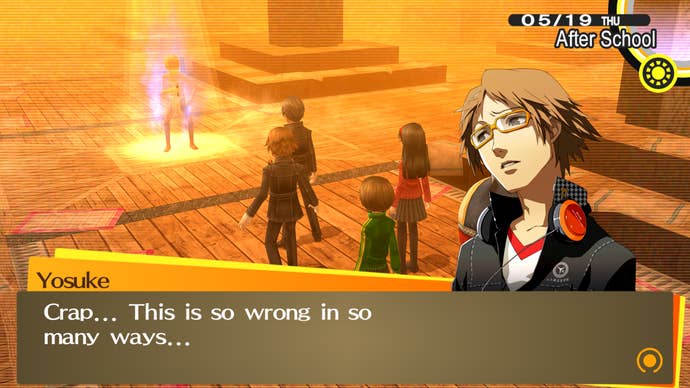
It’s the poor representation that has truly soured my time with the game, however.
P4G is rife with misogyny.
Female characters exist almost always under a male gaze, their worth directly relating to their looks.

They’re almost constantly hit on, be it by their friends or even their creepy teachers.
Speaking of societal norms, let’s discuss Kanji.
Major story spoilers follow.
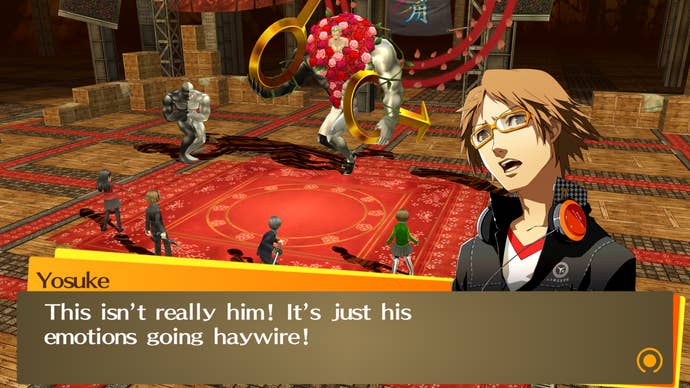
Kanji is a fellow student who has dropped out of school to beat up the local biker gang.
He’s aggressive, unlikeable, and a delinquent.
He’s also gay, though not explicitly.
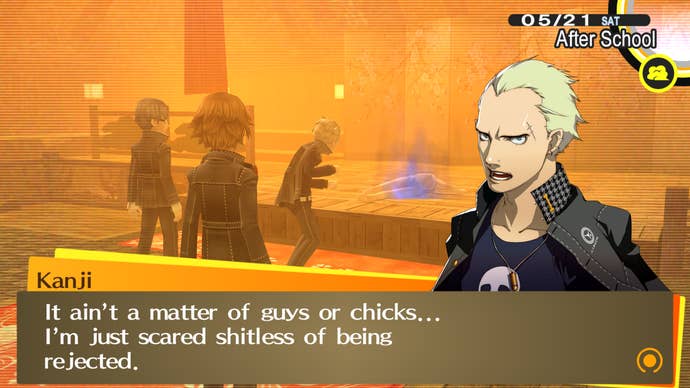
He’s just portrayed using harmful stereotypes that are at best awkward and at worst downright homophobic.
Playing through his story arc is deeply uncomfortable.
The Persona games thrive on psychoanalysis and purport to tackle tough subject matters.
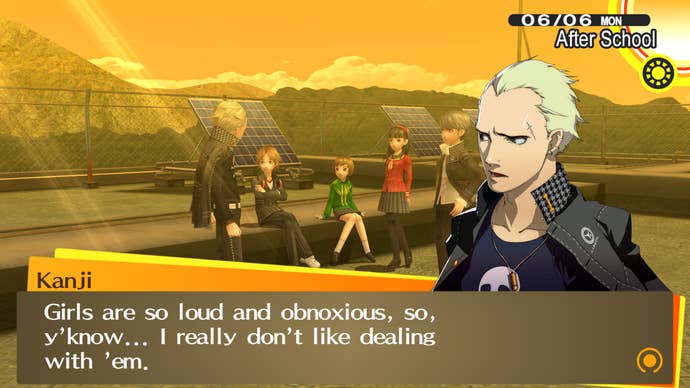
Kanji is no exception.
It’s clear he’s suffering from internalised homophobia - self-hatred due to his sexuality.
He lashes out at others and is quick to temper because he’s struggling to accept himself.
When questioned, Kanji insists “this ain’t what you think!
“, afraid to open up.
That is, until the dungeon.
“This is so wrong in so many ways,” responds one character.
Perhaps too the bathhouse represents Kanji’s own fears of homosexuality, again reflecting his own internalised homophobia.
“This isn’t really him!
It’s just his emotions going haywire,” says one character.
When Shadow Kanji screams “accept me for who I am!
“, the real Kanji refuses.
“Can’t believe something like this is inside me,” he says.
He simply has a fear of rejection, from either gender.
He’s interested in typically feminine pursuits like sewing and worries that this makes him less of a man.
After all the sexualised imagery and clear connotations of homosexuality, Kanji never comes out.
Instead he simply accepts his fear of rejection.
This is the “strength of heart” he shows, which isn’t strength at all.
It’s a bait and switch by the writers that utterly undermines the character and heightens feelings of shame.
Despite heavily implying he’s gay, this is not once acknowledged by Kanji or another character.
Of course, this sort of exploration was daring when the game first released.
Yet sexuality and the existence of LGBT+ people is not a salacious mystery to be solved.
The treatment of Kanji simply reveals a profound misunderstanding of what it means to come out.
Even worse, Kanji’s acceptance is tied to misogyny.
Not one of the other characters pulls him up on his comment.
Then there’s Naoto, described as a “slender young man” when first met.
He’s a young detective who uses male pronouns.
It doesn’t let you cross the barrier between the sexes”.
This sort of representation is not specific to P4G.
Persona 5 featured two predatory older gay men who are sexually aggressive towards a minor.
Its revised Royal version did make changes to this, which Atlus confirmed toIGNat the time.
In purely mechanical terms, P4G still stands as an impressive JRPG.
We all deserve better.